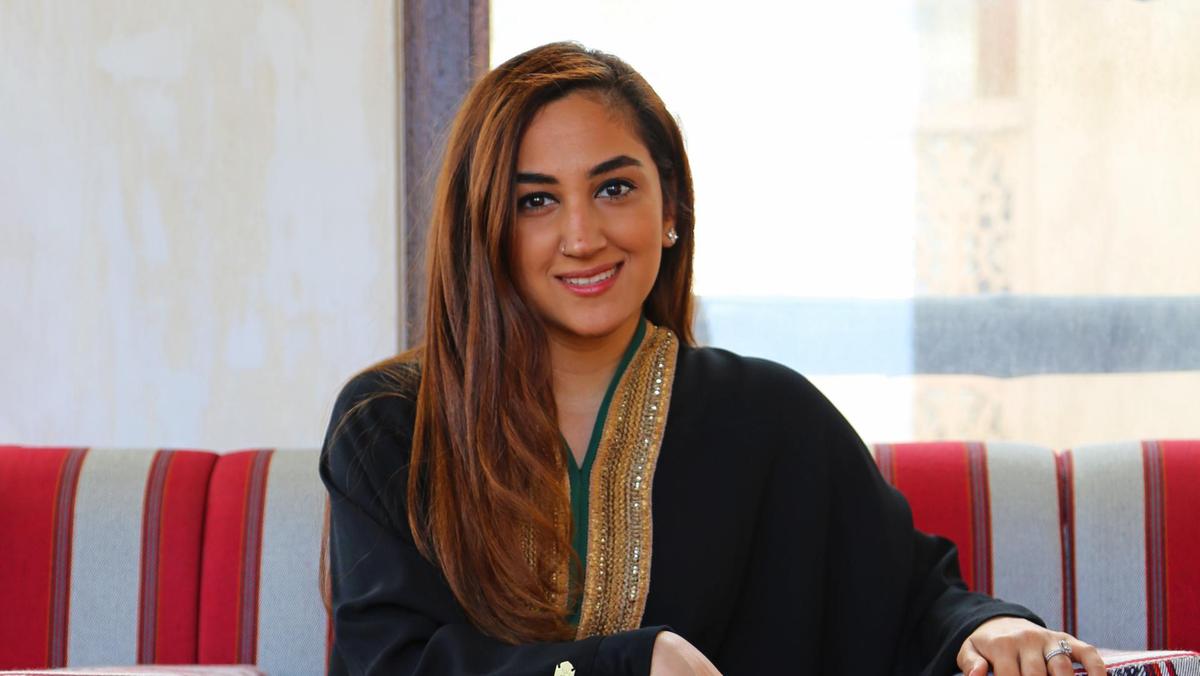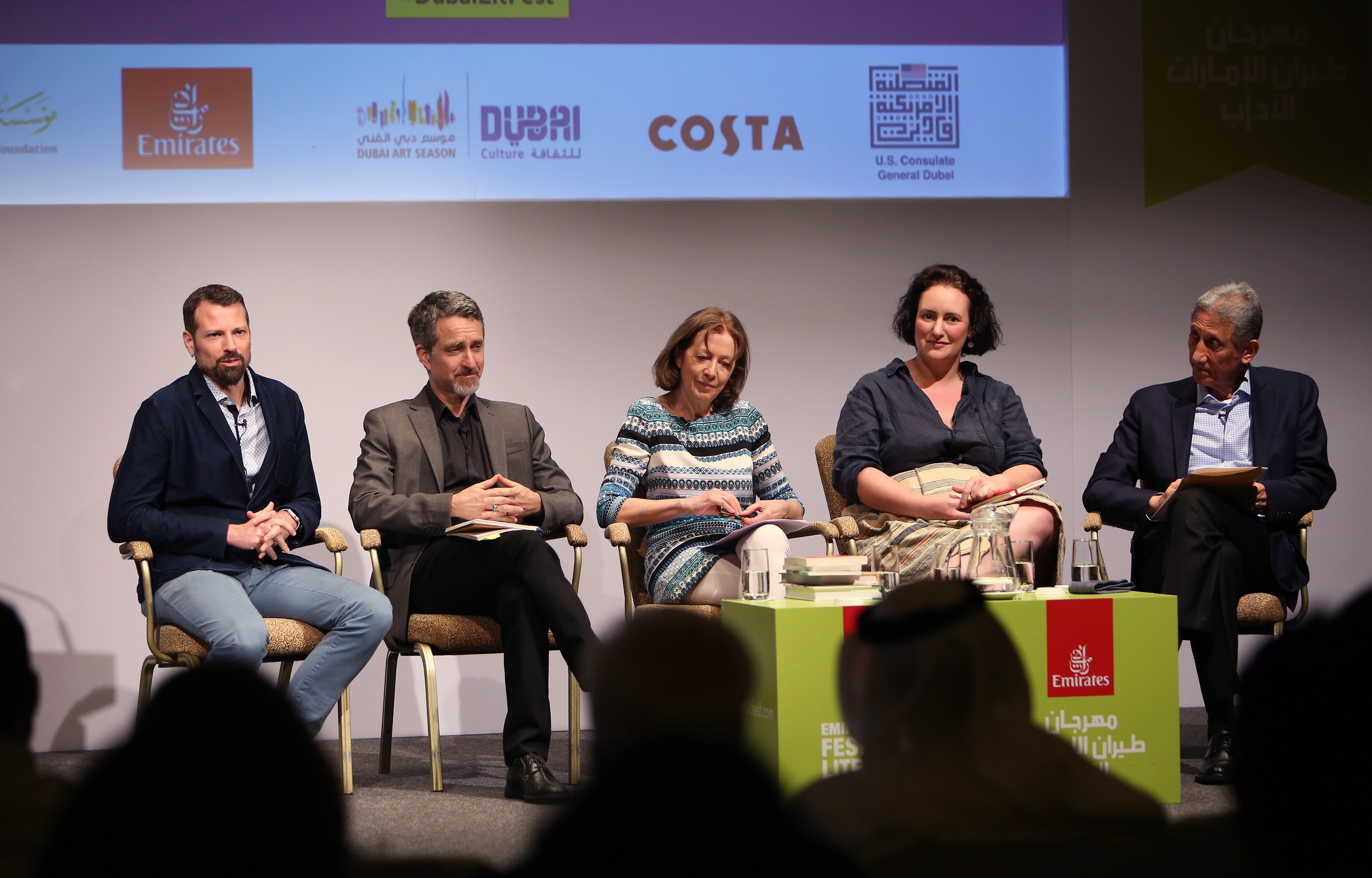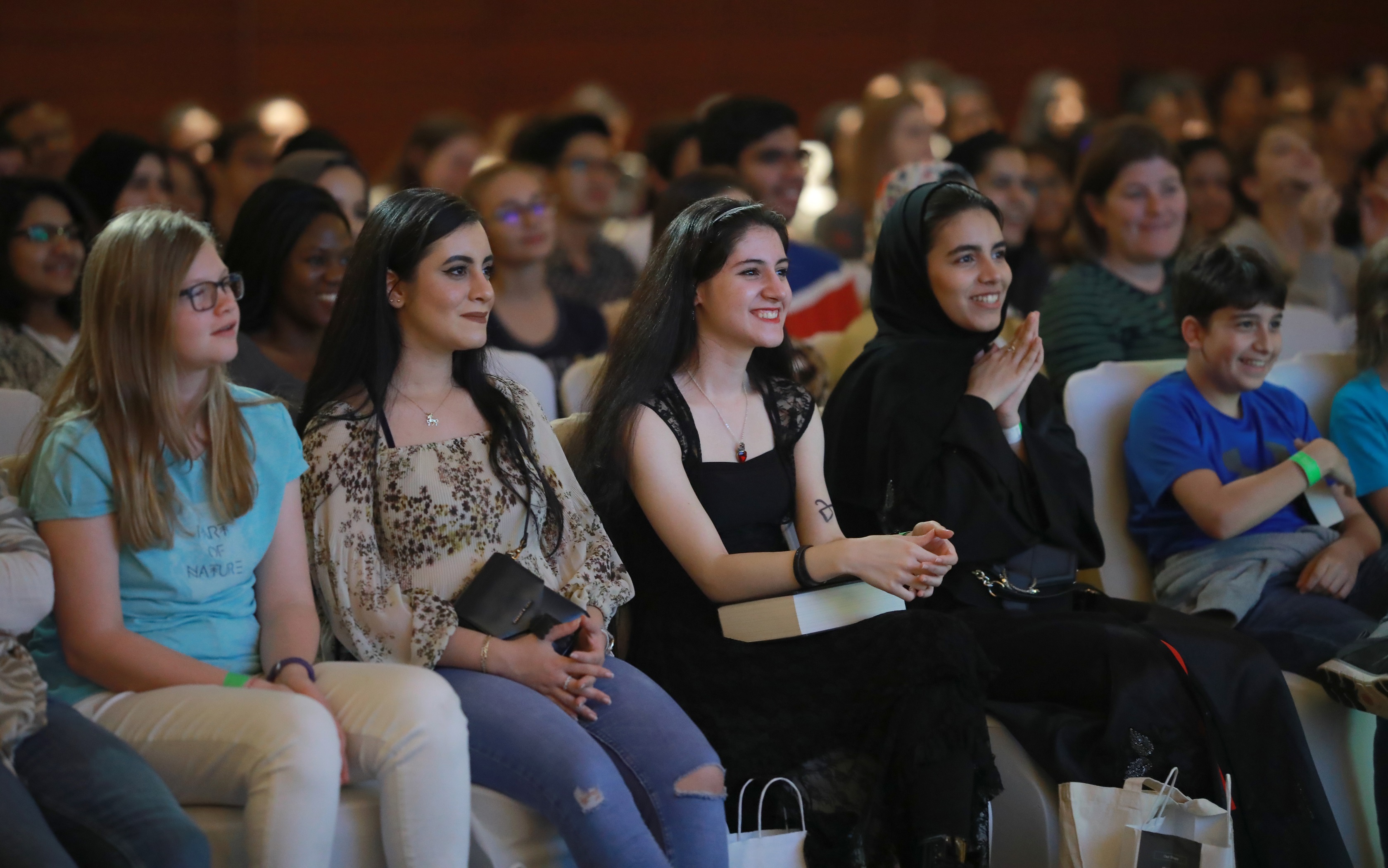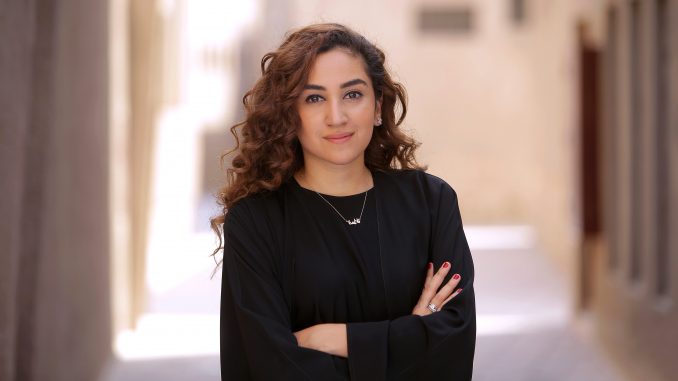Ahlam Bolooki, the Director of the Emirates Festival of Literature opens up on the importance of reading for pleasure, learning through literature and the most rewarding part of her role.

Ahlam Bolooki, the Director of the Emirates Festival of Literature opens up on the importance of reading
When it comes to reading, it’s never too late to fall in love with the pastime. Something Ahlam Bolooki knows all too well. While her childhood wasn’t one spent with her head buried in a book, by the time she reached her late teens she had discovered the power of words on a page – something that led her to the prestigious role she carries today.
Before taking on her current position as the Director of Emirates Literature Festival, Bolooki worked as the Head of Regional Campaigns at Dubai Tourism – the principal authority responsible for strengthening Dubai’s positioning as a world-leading tourism destination and achieving His Highness Sheikh Mohammed Bin Rashid Al Maktoum’s vision of attraction 20 million annual visitors to Dubai by the year 2020.
Speaking to A&E, she opens up on the most challenging part of her job, her motto in life and her favourite Emirati authors.
A&E Interviews Ahlam Bolooki, the Director of the Emirates Festival of Literature
When did your passion for books and language begin?
My passion for books started when I was 18, after reading a series of non-fiction books about the struggles of women in different parts of the world. I fell in love with language during my first marketing role at the age of 22, when my manager at the time noticed I have a special way with words.
What was your favourite book as a child?
I didn’t really have a favourite book as a child since I discovered the love of reading later on in life. But my favourite children’s book as an adult is definitely ‘The Little Prince’ by Antoine de Saint-Exupery.
Do you remember a particular moment when you realised you wanted to work within the world of literature?
Yes. I had started working on a project for the Emirates Airline Festival of Literature and was sent to Kuwait on a promotional trip. I was hosted by one of Kuwait’s most prominent authors and his family. We had conversations about literature, arts, philosophy, culture and education in the most revealing way.
On the same trip, I also visited another author in her bookshop – bookshop curated with so much love and consideration. There was so much soul in that place. I remember being sat on the couch of the bookshop with the author, having a conversation about how despite her struggles in this field, she wouldn’t choose any other path. That’s when I had this feeling that authors are the best kinds of people in the world and I want to be around them forever.
What’s the most rewarding part of your role?
The most rewarding parts have to be seeing masses of people walk through the Festival door with so much enthusiasm and watching a Festival that we carefully curated for 18 months come to life. It’s even more rewarding when we hear about the life-changing effects of sessions from attendees.
Sometimes they reminisce about authors they heard speak in previous years and it’s very fulfilling to have a job which leads to touching people’s lives, in the direct way that our Festival does.
What’s the most challenging part?
The most challenging part would have to be the author selection process. We start reading and researching for each Festival 18 months ahead of time and it’s very difficult to eliminate authors from our longlist while doing justice to all the incredible books that come out each year.
We also have one of the most diverse audiences in the world and therefore need to be well informed about literature from all over the world.
How has your culture and upbringing influenced your love of literature?
As a family, we were brought up in a household where we were encouraged to educate ourselves before making our minds up about the world around us. I believe this environment of an ongoing search for answers has instilled a curiosity in me and encouraged me to always read.
And what have books taught you about understanding other people and cultures?
Each book is a journey and there are so many lessons that books have taught me, but if I had to choose the most important one that comes to mind, it would have to be that people are neither all good, nor all bad.
There are many instances where the author helps readers empathise with the villain in a story and many circumstances which can lead a hero to behave in less than honourable ways.
What is the most recent book you’ve read?
The most recently published book I’ve read was Sweet Sorrow by David Nicholls, but I always have old classics on my bedside table and at the moment I’m reading Don Quixote by Miguel de Cervantes.
Who are some of your recommended Emirati authors?
The Festival is a great way to discover Emarati authors and in 2019 we had over 44 Emarati writers discussing their books. I would highly recommend Omar Saif Ghobash, author of Letters to a Young Muslim. I was very proud to see his book sold in a little book shop in Seattle on my trip over the summer.
Roudha Al Marri, author of UAE 101 is also an excellent conversation starter, helping English speaking readers understand more about the Emarati culture, language, misconceptions and way of life.
His Excellency Mohammad Al Murr is also a hugely respected Emarati author of The Wink of Mona Lisa, Dubai Tales and over 15 volumes of short stories in Arabic.
Why, in your opinion, is it important to read for pleasure?
Egyptian author Abbās al-Aqqād once said: “It’s reading alone which gives one person more than one life”. Reading offers a gateway into the shoes of countless characters from settings unfamiliar to us.
On the other hand, reading also gives us access to stories we can relate to and makes us feel like we are not alone. Research has shown that readers are more successful than non-readers in all aspects of life, personally and professionally.
How do you inspire people to read?
There is no one book fits all in literature. Just like art, literature is subjective too. I also don’t believe there are readers and non-readers in the world. Non-readers are simply those who have not come across the right book for them yet.
Do you have a motto in life?
My motto in life is to always be open to possibilities. In order to evolve as human beings, we must be open to being proved wrong, to changing our perceptions and pre-conceived notions. We must therefore never stop learning.
What do you still want to achieve?
The things I still want to achieve are less personal and more about the world as a whole. I want to leave a better planet for future generations. I want to put a stop to inequality between the genders at our generation. I want to build towards a more empathetic society, which will lead to a more empathetic world. The Emirates Airline Festival of Literature is a great place to start with achieving all of these goals.
Find out more at emirateslitfest.com.
READ MORE
Three Female Emirati Authors You Need To Know About
Podcasts All Bookworms Need To Subscribe To Now
New Short Story Collections for Bite-Sized Reading This Summer




















